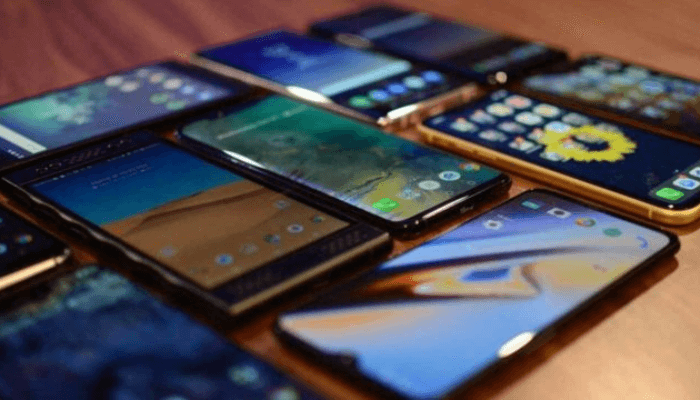In Nigeria’s bustling cities and growing towns, the smartphone has become more than a gadget — it’s an economy in itself. What started as a tool for communication has evolved into a lifeline that powers careers, connects markets, and fuels digital dreams across the nation.
From mobile payments to online businesses, smartphones are the new frontier of productivity — and behind every screen lighting up across the country are the dealers who keep this massive ecosystem alive.
Recent projections show that by the end of 2025, Nigeria will have over 140 million smartphone users — a number that speaks to more than just digital adoption. It tells a story of a nation building its economy through handheld innovation.
As broadband coverage expands — rising from 44.43% in 2024 to 48.81% by mid-2025 — mobile connectivity is turning Nigeria’s informal hustle into a structured digital marketplace. E-commerce, logistics, fintech, and entertainment all run on this invisible network, creating opportunities that didn’t exist a decade ago.
Yet, this wave of progress isn’t without turbulence. The currency reforms of 2023 and subsequent naira depreciation reshaped the mobile trade, forcing dealers to reimagine how they operate. Import costs soared, consumer spending fluctuated, and profit margins shrank. Still, in true Nigerian fashion, resilience won.
Dealers adapted. They diversified payment systems, digitized customer service, and expanded online storefronts. Lagos, the heartbeat of this commerce, remains the nerve center — a melting pot where global manufacturers, local distributors, and thousands of consumers converge daily in an unbroken cycle of demand and delivery.
This dynamic market has birthed a new class of entrepreneurs — bold, tech-savvy, and rooted in local understanding — who are transforming the phone retail business into an organized, technology-driven sector.
Chief Nwankwo Ebere — The Vision Behind Phonemart Technologies
Among Nigeria’s leading voices in this transformation is Chief Nwankwo Reginald Ebere, the visionary founder of Phonemart Technologies, a flagship brand under the Regal Group of Companies.
What began in 2008 as a modest mobile and gadget retail venture has grown into one of Nigeria’s most recognized names in the distribution of smartphones, laptops, cameras, and digital accessories. Phonemart’s success lies in its hybrid model — maintaining nationwide stores while building a strong online marketplace that bridges convenience and trust.
Chief Nwankwo’s story reflects the evolution of Nigeria’s enterprise spirit. A graduate of Accounting and Law from Abia State University, he honed his skills at Inland Bank (now FCMB) and Parktel International, where he learned the mechanics of ICT distribution before charting his own path.
Under his leadership, The Regal Group has expanded into a diversified enterprise — spanning real estate, technology, construction, and consumer retail through subsidiaries such as Regal Cribz, Regal Granites, RegalBuyer Limited, and Regal Devices Limited.
Beyond commerce, Chief Nwankwo embodies civic leadership and service. His tenure as Supervisor for Agriculture (2016–2018) and later Senior Special Assistant on Media to former Abia State Governor Okezie Ikpeazu (2018–2021) illustrates his commitment to public growth alongside private innovation.
Phonemart’s footprint today represents more than business success — it’s a testament to how digital retail can drive employment, bridge connectivity, and shape Nigeria’s path toward a digitally inclusive economy.
Nigeria’s smartphone economy is not just expanding; it’s maturing — led by entrepreneurs like Chief Nwankwo who see beyond sales and into systems, beyond gadgets and into empowerment.
Every device sold tells a story — of ambition, access, and advancement. And in that story, Nigeria’s digital future is already being written — one smartphone at a time.

